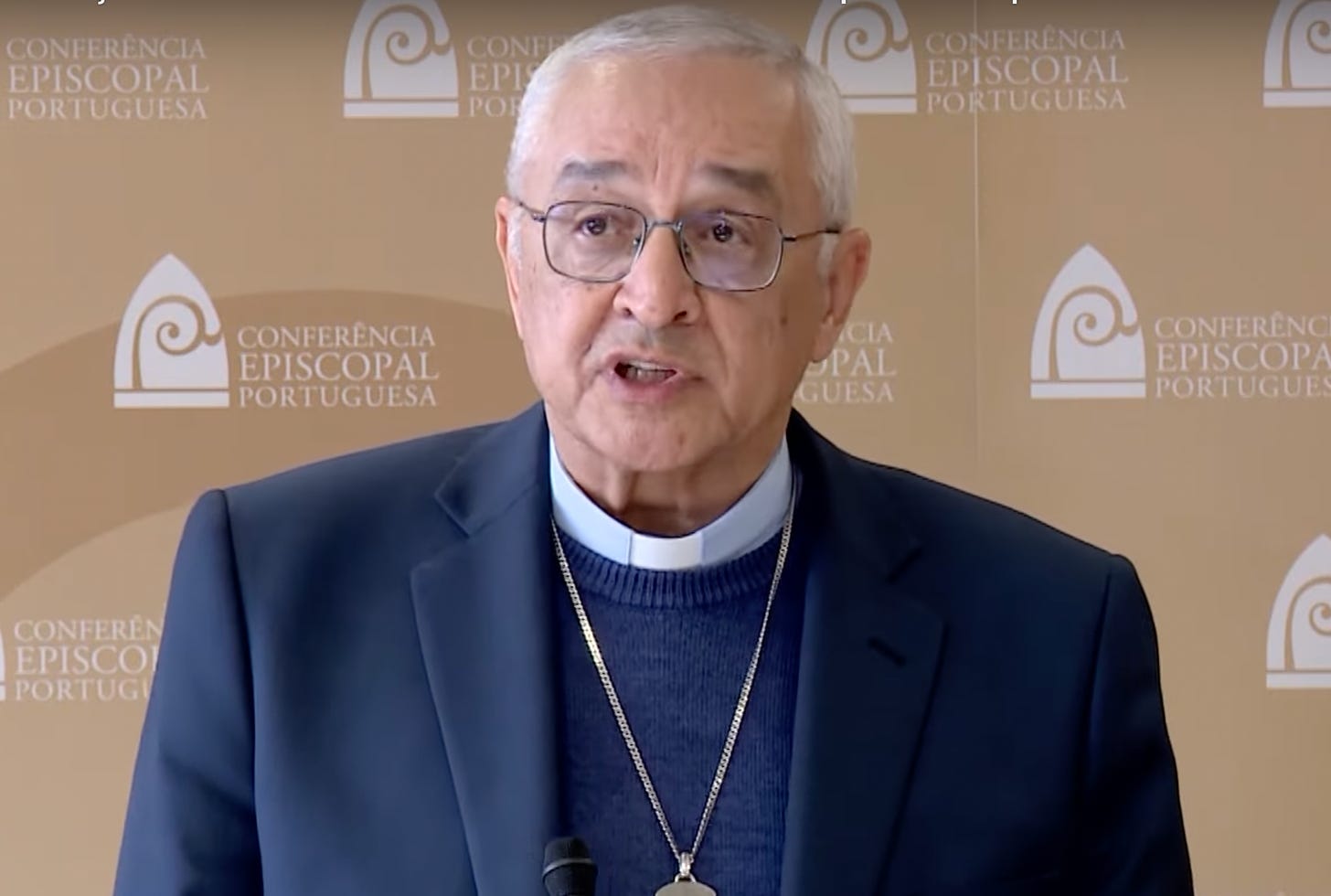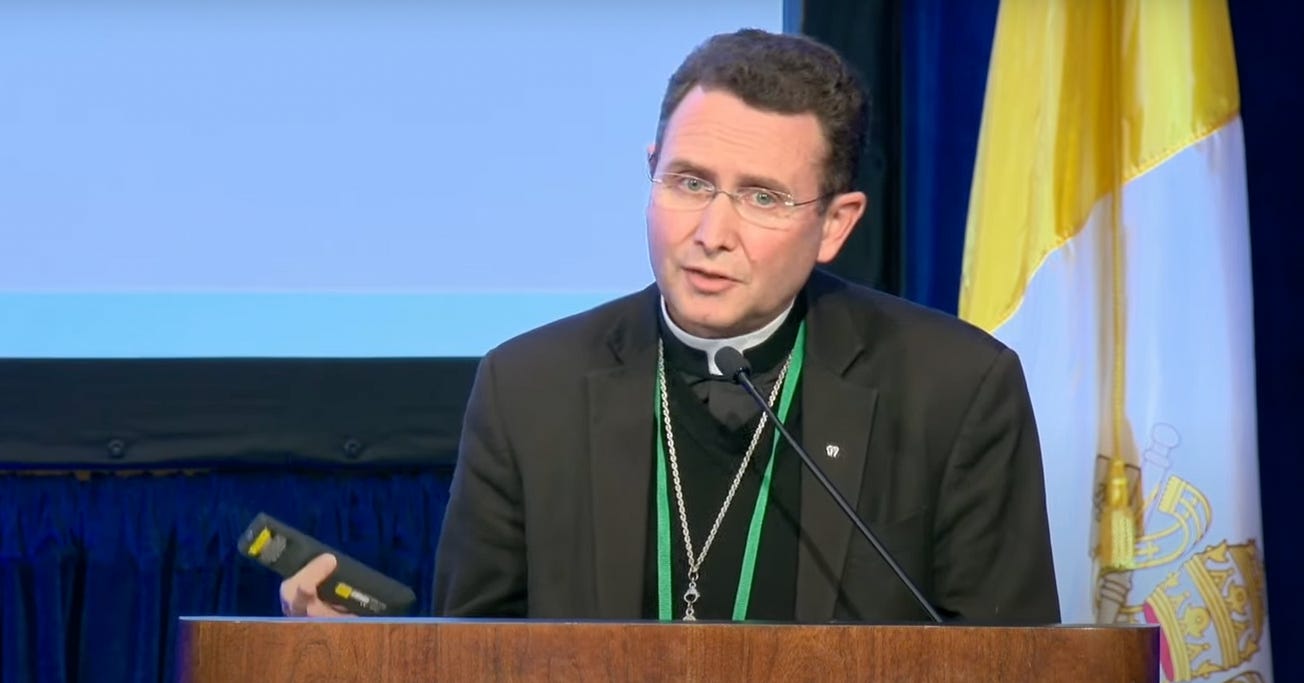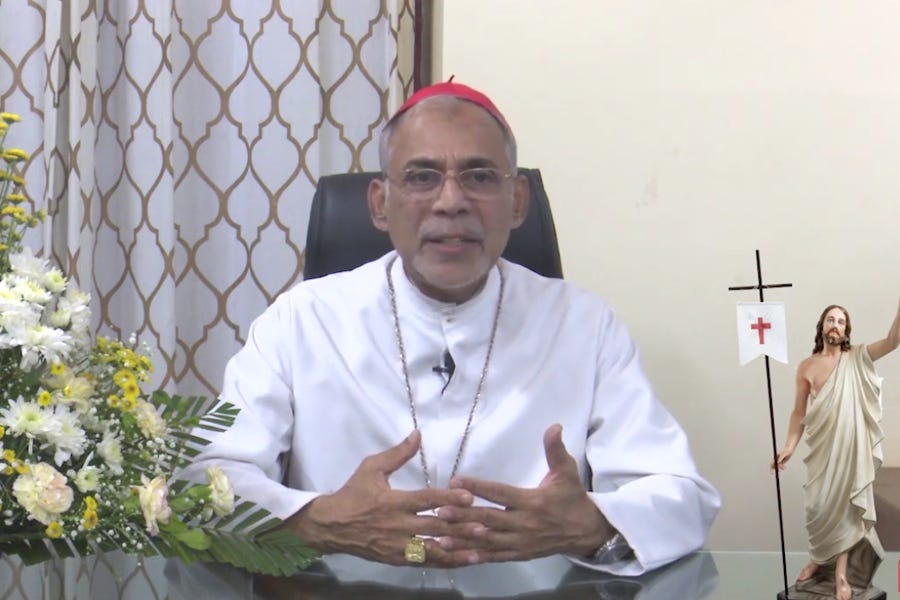After an independent commission set up by the bishops of Portugal issued its final report last month, many Catholics hoped it would mark a new era of transparency and accountability in the Church.
At the time the report was published on Feb. 13, both bishops and the commission had a high degree of public confidence and good will. But, since the commission delivered its list of individual accused clergy to dioceses earlier this month, both the bishops and the commission have suffered a litany of public relations disasters, eroding public confidence and enraging public opinion against the Church.
After starting with such a highly credible and well received report just one month ago, how did it all go so wrong for the Church in Portugal, so fast?
In 2021 the Portuguese bishops empowered an independent commission to study the extent of child sexual abuse in the Catholic Church.
In previous years, fewer than two dozen cases had emerged, along with unsubstantiated accusations of cover-ups. A major investigation by an online newspaper in 2017, which included repeated calls for abuse survivors to reach out, produced six features, but only one new case. While many Catholics, and even some bishops, believed — or perhaps hoped — that child sex abuse was essentially an Anglo-Saxon problem, others worried that there might be more to it. The Independent Commission was called to shed some light on this.
The experts were given 10 months to collect testimonies and a group of historians was given a free pass to scour through diocesan archives. The commission chairman, child psychiatrist Pedro Strecht, gave occasional press conferences in which he explained that the testimonies were coming in steadily and that there was indeed a problem that the Church needed to address, but he and other members were always open in their praise of the bishops and their readiness to cooperate. With few exceptions, the bishops reciprocated.
When the results were presented Feb. 13, commission members read out harrowing accounts of abuse and explained that they had received more than 500 testimonies, from which they extrapolated a minimum of 5,000 cases over a 70-year period, though most people agree that the real number is probably far worse.
The report kept all witnesses anonymous and redacted the names of the alleged abusers. But the commission said it would prepare a list of the names of over 100 abusers who were still active in the Church which would be given to the bishops on March 3.
The bishops’ conference called a plenary meeting for that date, to discuss the steps to take next. At that meeting, the commission gave each bishop a sealed envelope with a list. A press conference was called for 6 p.m. and, after weeks of mounting expectations, the press and the public were eager to know what would happen to the suspects who had been named.
The most charitable accounts of what happened next described it as “a trainwreck.”
Bishops were offered media training, but declined.
Media experts who often advise bishops on such issues arrived in Fátima to find the press were being made to wait outside the building in the wind and rain before the conference began, and not in a receptive mood by the time they were let in.
The press conference began with the bishops’ spokesman, Fr. Manuel Barbosa, monotonously reading a long statement, which many attendees found hard to follow and which buried decisions to pay for psychological and medical support for victims, the creation of a new permanent commission to receive future allegations, and a memorial to victims, to be inaugurated during WYD, in long-running paragraphs.
Then came question time, with the microphone passing to Bishop José Ornelas of Leiria-Fátima, who currently heads the bishops’ conference.
Journalists asked what the Church was going to do about the priests on the lists the bishops had just been handed, and received no clear answers. “All we were given was a list of names, with no further information,” Ornelas explained, adding that bishops would have to deal with the issue case-by-case.
“I can’t remove a priest from ministry just because someone comes along and says ‘this man abused somebody’. Who says so? Where? When? Removing somebody from ministry is a very serious thing,” Bishop Ornelas continued, generating a wave of headlines saying “Bishops are not going to suspend suspected abusers.”
The new commission, the promise of psychological support, and all other measures were hardly mentioned. Church critics – from politicians to activists – fumed, and even regular faithful Catholics were shocked by the lack of urgency or a clear plan to deal with abusers potentially still in ministry.
'Clueless'
“I have never seen anything like it,” said one seasoned Church communications expert who spoke to The Pillar.
“Instead of just saying that, despite lack of information, the bishops were going to do everything they could to investigate and remove priests who faced credible allegations from active ministry, the bishop highlighted the difficulties and obstacles. The bishops had one year to prepare a response, and they ruined it all with this horrendous press conference.”
The expert, who, like all the bishops, priests, and Catholic figures who spoke to The Pillar, asked not to be named citing the sensitivity of the issue, had little doubt that this is the most severe crisis the Portuguese Church has seen in decades.
“And do you know what the worst is? They didn’t even realize it. When the press conference finished, Bishop Ornelas walked up to a group of acquaintances and commented: ‘Well, that wasn’t too bad, was it?’, while Fr. Barbosa nodded beside him ... It’s as if they are from a different era.”
📰
A layman who heads an important Catholic professional guild offered a perspective that he said is broadly held among Catholic professionals working in Portugal: “You don’t get a second chance at a first impression, and that press conference laid waste to all the capital of goodwill the bishops’ conference had accumulated over these past months.”
As the press, talking heads, and social media exploded in fury at the Church, it seemed like the situation couldn’t get any worse. But on Saturday, journalists caught up with Cardinal Manuel Clemente, who as Patriarch of Lisbon is one of the most important clerics in the country, and asked him if he agreed that the alleged abusers on the lists should not be removed from office while the allegations were investigated. The journalists used the term “suspension” in their questions and the cardinal appeared to miss the point over a technicality.
The Vatican’s most recent instructions say “that the older terminology of suspensio a divinis is still frequently being used to refer to the prohibition of the exercise of ministry imposed on a cleric as a precautionary measure. It is best to avoid this term… since in the current legislation suspension is a penalty, and cannot yet be imposed at this stage. The provision would more properly be called, for example, prohibition from the public exercise of ministry.”
Without explaining the distinction of terms, the patriarch told journalists that “Suspension is a very serious penalty that can only be applied by the Holy See, it’s not something the bishop can do himself,” leaving them to believe he would not temporarily remove suspected abusers from office, even though the Lisbon diocese had already suspended several priests in recent years, including some who were later acquitted.
The headlines were, again, unforgiving: “Manuel Clemente will not suspend priests without proof,” ran the Público, one of Portugal’s leading daily papers.
“The big problem with our Church is that it doesn’t know how to communicate. We can make all the right decisions, and have the best of intentions, but we don’t know how to get it across,” explained a priest who has experience working in the communications department of a large diocese.
Another priest, from a different diocese, told The Pillar that the bishops appeared to be on a mission of self-sabotage:
“They had all the time in the world. It is completely inexcusable. I asked if there was a communications plan and they told me to relax because the bishops’ conference was handling it. What sort of plan did they have? They had nothing.”
In the end, it took five days for the Lisbon diocese to issue a clarification through the more media-savvy auxiliary, Bishop Américo Aguiar, who was left to explain to a press conference the technical difference between “suspension” and “prohibition.”
But by then the situation nationally had already been aggravated further by an interview given by the Bishop of Beja, in which he reminded the nation’s Catholics that we are all sinners, and that even pedophiles could be forgiven. Though he didn’t say it directly, the bishop was widely interpreted as suggesting that if an abuser repented and made some reparations, he could be restored to active duty.
“Until now people’s attitude towards the abuse issue was of disgust at the actions of guilty priests. But with this the mood has changed,” said the Church media expert. “There is absolute fury with the bishops, and it isn’t only coming from the usual critics, it is also coming from within.”
“My only hope is that it has gotten so bad that they will realize that they need to finally do something about it. But to be honest, I wouldn’t be surprised if one of these days a bishop gets physically assaulted in the street. That’s how bad I think it is,” he said.
Presidential reprimand
The bishops’ collective PR meltdown also prompted pointed criticism from the President of the Republic, Marcelo Rebelo de Sousa, a practicing Catholic.
“I try not to approach these issues as a Catholic, although if I were speaking as a Catholic, I would be even harsher. As president, what I expected was for there be swift accountability, preventive measures, and reparations. It was simple. Instead, they got everything backward,” he said.
“As president, this worries me, because the Church is a fundamental institution in society, in terms of education, in health, for social unity. The country needs it. And now it has taken a blow to its credibility, on such a basic issue, and that is going to have an effect on people’s lives,” added Rebelo de Sousa.
Meanwhile, the relationship between the independent commission and the bishops also deteriorated, now verging on open hostility. When the bishops complained that all they had been given were names of alleged abusers, with no additional context, the commission members replied that this was untrue and that the dioceses had all the information they needed.
But while public opinion reflexively sided with the commission after repeated episcopal gaffes, the commission itself is now under fire.
'Actively dead'
The first sign that something wasn’t right came on Saturday, March 4, the day after the press conference.
The Diocese of Funchal, which covers the Madeira archipelago, issued a statement saying that of its list of four names, three no longer held any office in the diocese and the fourth was unknown.
Over the next several days other dioceses began to release similar statements. One had received only two names, both of which were dead. One had died around 60 years ago.
One week after the press conference, 17 of the country’s 21 dioceses had released information regarding their lists. Out of 83 names, 31 were dead, nine were unknown in the diocese, four had already been tried and acquitted, either civilly or canonically, and seven already had canonical or civil cases underway.
Of the 13 who were no longer in active ministry, some were found to be old, retired, or ill, but The Pillar has confirmed that several are no longer active in the priesthood, having been laicized either at their own request or by canonical imposition, and at least one no longer lives in Portugal.
Five of the names were in fact new cases, and were immediately withdrawn from active ministry pending a canonical investigation, and one more had already been withdrawn and was being investigated long before the list was delivered.
The remaining 13 are priests about whom the dioceses of Lisbon, Porto, and Coimbra requested further information before taking any preventive measures.
This left many wondering what the commission meant when it said it had delivered each bishop a list of clergy in “active ministry.”
📰
Portugal’s main Catholic media group, Renascença, tried to reach out to commission members to inquire about the lists, but only one member answered - saying she would not comment on the lists.
One day later, however, Ana Nunes de Almeida had a change of heart and explained in a discussion on Twitter that, even though the commission’s president Pedro Strecht had initially stated that only active priests would be named, and this was written in the final report, it had eventually been decided to include all names of accused priests, including of those who were dead or no longer in ministry.
Diocesan offices that The Pillar reached out to insisted that they had no idea there had been a change of plan regarding the lists, and in fact, the only clear reference seems to have been a short answer in a long, paywalled, interview with Ana Nunes de Almeida in the Observador.
Nobody in the commission, it seems, thought it necessary to make the change of policy clear to the press or the wider public, who continued to expect and report that a list of 100-plus alleged abusers who needed to be removed from ministry would be delivered by March 3.
Questionable methodology
But the problems with the commission could go deeper, according to a source from a religious order who liaised with the commission and the group of historians.
“The group of historians signed a confidentiality agreement, which stipulated that they could use the names of any living suspects, but for legal and accountability reasons they would not divulge the names of dead suspects who are no longer around to defend themselves,” they told The Pillar.
“We had always been told that the dioceses and religious orders would receive lists of living suspects gathered through testimonies and access to archives, so you can imagine our surprise when we realized that they had included the dead in the lists as well.”
But there was more. “The questionnaire that abuse victims were asked to fill in did not have a consent form, they were told that it was all going to be anonymous. However, the commission then included some of the accounts in its report, and even read them aloud during the presentation.,” they said. “Some of these accounts have details that make them quite easy to identify.”
According to the commission liaison, there were several known cases “of people who went to the commission in confidence, and then ended up having their situations revealed to their friends and families.”
“A lot of the methodology used by the commission members was amateurish, yet they have now been criticizing the bishops publicly and refusing to take responsibility for their own mistakes,” they said.
“This had never been done before in Portugal, there were bound to be problems, things that could be improved upon, but they have refused to accept any type of criticism, always taking the moral high ground,” said the source, who nonetheless stressed that the work done overall, and the final commission report, are an important contribution to finally dealing with the issue of sexual abuse in the Church.
Officials close to the process now say that the commission may have been too independent, with few checks on its processes and methods by the bishops, for fear of being seen as interfering. Sources close to the bishops’ conference say the prelates were shocked to open their envelopes and find that there was no information in them besides a name, and sometimes only a first name at that.
In the midst of what is now considered a general PR meltdown by both the bishops and the commission, victims’ advocates are voicing concerns that other abuse survivors will be discouraged from coming forward with their own cases, which would completely defeat the purpose of the whole process.
An abuse victim whose testimony was included in the final report told The Pillar that he would still have spoken to the commission, but that he was very critical of both the bishops and the commission. “All of this has been very difficult for victims. The arguments and contradictions, the mixed messages from the dioceses, the constant presence of the topic in the news cycle, none of that helps us.”
“The bishops should centralize their response and their communication through the conference, and they should invest in hiring media aides. Then they should shut themselves in a room with representatives of the independent commission, and hash things out, for everybody’s sake,” he said.





